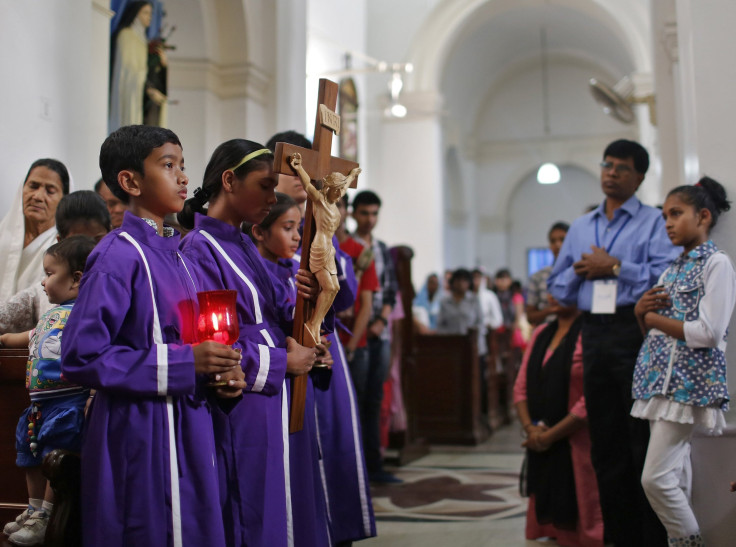Church Vandalized In New Delhi, Days Before Crucial Local Elections

NEW DELHI -- Just five days before India’s capital city votes in a crucial election for the city’s local assembly, a church in the city's south was reportedly vandalized early Monday morning. It's the fifth such incident in the capital since November.
St. Alphonsa’s Church in the Vasant Kunj area of South Delhi was broken into and several items were thrown about, several local media outlets reported. While two similar incidents were reported in January, one was reported in December. India is home to about 24 million Christians, who make up about 2.3 percent of the country’s population, forming the third largest religious group after Hindus and Muslims. According to India’s 2001 census, the latest available data, just under 1 percent of Delhi’s residents are Christians.
Significantly, the latest case of vandalism comes just days after U.S. President Barack Obama, who was on a three-day visit to India, said that the country would succeed if it isn’t “splintered” along religious lines. Obama was possibly alluding to the issue of religious conversions that has gained prominence in India in the last few months, since the right-wing BJP came to power in May last year, under the prime ministership of Narendra Modi.
“Our freedom of religion is written into our founding documents, it's part of America’s very First Amendment. Your Article 25 says that all people are equally entitled to freedom of conscience, and the right freely to profess, practice and propagate religion,” Obama had said. “In all countries, upholding this fundamental freedom is the responsibility of government, but it's also the responsibility of every person,” he added.
With the resurgence of the BJP, religion has yet again assumed significance in the country’s national political discourse. Some BJP-affiliated, right-wing organizations and some BJP members of parliament had threatened to convert thousands of Muslims and Christians to Hinduism, and also took such a step in early December. Following race riots in Modi's home state of Gujarat in 2002, he was denied a visa by the U.S., but relations between him and the U.S. have undergone a marked change since India's Supreme Court absolved him of involvement in the riots, and he became prime minister following a landslide election victory in May last year.
“Every person has the right to practice their faith, how they choose or to practice no faith at all, and to do so free of persecution, and fear and discrimination,” Obama said, on the last day of his visit in late January.
Although India has a majority Hindu population, its constitution defines it as a secular nation that guarantees equal rights and freedoms to people of all religions.
© Copyright IBTimes 2024. All rights reserved.





















